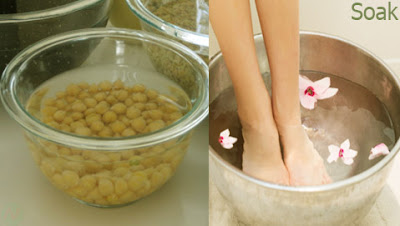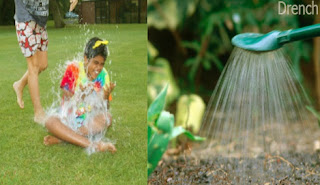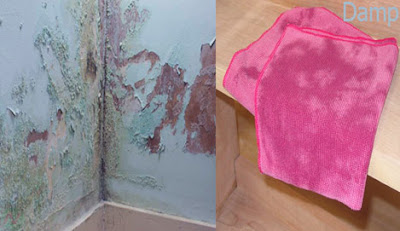Learn Different Types of Wets Name with Necessary Vocabulary
Wet Synonym & Wet Antonym
Different Types of Wets
Wet / wet / (ওএট্) n 1. [wet is the condition of containing liquid or being covered in liquid, especially water. Wetness is also a measure of how well liquid sticks to a solid rather than forming a sphere on the surface] (ভেজা; সিক্ত): Try not to get your shoes wet. Her hair was still dripping wet. His face wet with tears. Wet clothes
Wet Related Necessary Vocabulary Note
2. [describes weather or periods of time when rain falls] (<আবহাওয়া সম্বন্ধে>বৃষ্টি-ঝরা; বর্ষণসিক্ত): it is going to be wet tomorrow. We have had wet weather all week. This is the first wet day for two months. A wet day. A wet climate
<VERB> Wet / wet / (ওএট্) v {Pt. Pp. wetted / wetɪd / (ওএটিড্)} [to make something wet] (ভিজানো): He wetted a rag and tried to rub the mark away. Wet your hair thoroughly before applying the shampoo. Wet the brush slightly before putting it in the paint.
Ø Stick / stɪk / (স্টিক্) v {PT. Pp. stuck / stʌk / (স্টাক্)} [to fix Sth to Sth else, usually with a sticky substance; to become fixed to Sth in this way] (আঠালো কিছুদিয়ে আটকে রাখা/থাকা): Her wet clothes were sticking to her body.
Ø <IDM> Rather than [instead of Sb/Sth] (পরিবর্তে; বদলে): I think I’d like to stay home this evening rather than go out.
Ø Dripping / ˈdrɪpɪŋ / (ˈড্রিপিঙ্) adj [very wet] (জপজপে ভেজা): It’s so hot outside – I’m absolutely dripping (wet).
 |
| 1. Tear |
Ø Tear / tɪr / (টিএর্) n 1. [a drop of salty liquid that comes out of your eye when you cry] (চোখের জল, অশ্রু): He suddenly burst into tears(=began to cry). Tears of remorse/regret/happiness/joy/laughter
 |
| 2. Tear |
2. Tear / ter / (টেএর্) v {Pt. tore / tɔːr / (টোর্); Pp. torn / tɔːrn / (টোর্ন্)} [to damage Sth by pulling it apart or into pieces or by cutting it on Sth sharp; to become damaged in this way] (ছিঁড়ে ফেলা; ছেঁড়া; ছিন্ন করা): She tore her skirt on a nail. He tore the letter in two.
<SYN> Rip
 |
| Rag |
Ø Rag / ræg / (র্যাগ্) n [a piece of old, often torn cloth used especially for cleaning things] (ন্যাকড়া; ত্যানা): I wiped the table with a dame rag.
Ø Rub / rʌb / (রাব্) v {Pt. Pp. rubbed / rʌbd / (রাবড্)} [to move your hand, or Sth such as cloth, backward and forwards over a surface while pressing firmly] (ঘষা): My new shoes are rubbing and now I have got blisters.
Ø Away / əˈweɪ / (এˈওএই) adv [until disappearing completely] (ক্ষয়পাওয়া, কমা, দুর্বল/পরিশ্রান্ত হওয়া বোঝানোর জন্য ক্রিয়াপদের সঙ্গে ব্যবহৃত): All the snow had melted away. The music faded away.
Ø Apply / əˈplaɪ / (এˈপ্লাই) v {Pt. Pp. applied / əˈplaɪd / (এˈপ্লাইড্)} [to put or spread Sth such as paint, cream, etc. onto a surface] (প্রয়োগ করা; দেওয়া; লাগানো): Apply antiseptic to a wound.
Soak
Soak / soʊk / (ছৌক্) n [when something is put into a liquid for a long period of time; an act of marking Sb/Sth wet] (সিক্তকরণ; ভেজানো): Most dried beans need a soak before they are cooked.
<VERB> Soak / soʊk / (ছৌক্) v {Pt. Pp. soaked / soʊkt / (ছৌকট্)} [to make very wet, or (of liquid) to be absorbed in large amounts] (<তরল কিছুতে>কোনোকিছু ভিজানো): If you soak the tablecloth before you wash it, the stains should come out. Leave the chickpeas to soak for 30 minutes.
Ø Absorb / əbˈsɔːrb / (এবˈছোর্ব্) v {Pt. Pp. absorbed / əbˈsɔːrbd / (এবˈছোর্ব্ড্)} [to take in a liquid, gas or other substance from the surface or space around] (শুষে নেওয়া; আত্নীভূত করা): Towels absorb moisture.
Ø Wash / wɑːʃ / (ওআঃশ্) v {Pt. Pp. washed / wɑːʃt / (ওআঃশ্ট্)} [to make Sth/Sb clean using water and usually soap] (ধৌত করা; ধোয়া): I will wash the bottle out and use it again. Wash the fruits thoroughly before eating.
<SYN> Clean
 |
| Stain |
Ø Stain / steɪn / (স্টেইন্) n [a dirty mark on something that is difficult to remove] (কঠিন দাগ বা রঙের ছোপ): You can remove a red wine stain from a carpet by sprinkling salt over it.
Ø Leave / liːv / (লীভ্) v {Pt. Pp. left / left / (লেফট্)} [to make or allow Sb/Sth to remain in a particular condition, place, etc.] (কোনোকিছু বিশেষ অবস্থায় থাকতে দেওয়া): Leave the rice to cook for 20 minutes. Leave the dishes – I will do them later.
Ø Chickpea / ˈtʃɪkpiː / (ˈচিক্পী) n [a hard round seed, like a light brown pea, that is cooked and eaten as pulses or vegetable] (বুট বা ছোলা): slit chickpea (=বুটের ডাল)
Drench
Drench / drentʃ / (ড্রেনচ্) v {Pt. Pp. drenched / drentʃt / (ড্রেনচট্)} [to make someone or something completely wet] (পরিপূর্ণভাবে ভিজে যাওয়া): His face was drenched with sweat. A sudden thunderstorm had drenched us to the skin.
 |
| Thunderstorm |
Ø Sweat / swet / (ছোয়েট্) n [drops of salty colorless liquid that appear on the surface of your skin when you are hot, ill/sick or afraid] (ঘাম; ঘর্ম): Their bodies were soaked in sweat.
<SYN> Perspiration
Ø Thunderstorm / ˈθʌndərstɔːrm / (ˈথান্ডএর্স্ট্রোর্ম্) n [a storm with thunder and usually very heavy rain] (বজ্রবিদ্যুৎপূর্ণ ঝড় বৃষ্টি): The church was struck by lightning during a violent thunderstorm.
Moist
Moist / mɔɪst / (ময়ছট্) adj [slightly wet, especially in a good way] (ভেজাভেজা): Water the plants regularly to keep the soil moist. Keep the soil in the moist, but not too wet. Her skin felt moist and feverish. This cake is lovely and moist! Try to keep the soil evenly moist.
<NOUN> Moisture / ˈmɔɪstʃər / (ˈময়ইছচএর্) n [very small drops of water that are present in the air, on a surface or in a substance] (আর্দ্রতা; জলীয়তা): These plants need a rich soil which retains moisture. Tiles stop moisture from penetrating your walls.
<VERB> Moisten / ˈmɔɪsn / (ˈময়ইছ্ন্) v {Pt. Pp. moistened / ˈmɔɪsnd / (ময়ইছ্ন্ড্)} [to make something slightly wet or to become slightly wet] (হাল্কাভাবে ভেজা বা ভেজানো): Wash the wound gently with a piece of moistened cotton wool. Moisten the cloth before using it to clean glass.
 |
| Feverish |
Ø Feverish / ˈfiːvərɪʃ / (ˈফীভএরিশ্) adj [suffering from a fever; caused by a fever] (জ্বরের লক্ষণযুক্ত): She was aching a feverish (=disease).
Ø Lovely / ˈlʌvli / (ˈলাভলি) adj [very enjoyable and pleasant; wonderful] (উপভোগ্য; আনন্দ-পূর্ণ): ‘Can I get you anything?’ ‘A cup of tea would be lovely.’ A lovely meal/evening
Ø Evenly / ˈiːvnli / (ˈঈভনলি) adv [in or into equal amounts] (সমানভাবে): Make sure the paint covers the surface evenly.
Ø Retain / rɪˈteɪn / (রিˈটেইন্) v {Pt. Pp. retained / rɪˈteɪnd / (রিˈটেইন্ড্)} [to keep or continue to have something] (রাখা; অব্যাহত রাখা; বজায় রাখা): This plants will need a soil that retains moisture during the summer months.
<SYN> Preserve
Ø Penetrating / ˈpenɪtretɪŋ / (ˈপেনিট্রেটিঙ্) adj [spreading deeply or widely] (গভীরে ও চারিদিকে ছড়ানো): the penetrating cold/damp
Humid
Humid / ˈhjuːmɪd / (হিঊমিড্) adj [(of air and weather conditions) containing extremely small drops of water in the air] (<বিশেষত বাতাস ও জলবায়ু সম্বন্ধে>আর্দ্র, সেঁতসেঁতে ও জলো): New York is very hot and humid in the summer. The weather had become very humid. These flowers will grow best in a humid atmosphere.
<NOUN> Humidity / ˈhjuːmɪdəti / (ˈহিঊমিডএটি) n [the amount of water in the air/the quality of being humid] (আর্দ্রতা): Instruments constantly monitor temperature and humidity. The museum is equipped with sophisticated humidity controls.
Ø Summer / ˈsʌmər / (ˈছামএর্) n [the season of the year between spring and autumn when the weather is warmest, lasting from June to September north of the equator and from December to march south of the equator] (গ্রীষ্মকাল): It’s very hot here in summer.
Ø Sophisticated / səˈfɪstɪkeɪtɪd / (ছএˈফিছটিকেইটিড্) adj [(of a machine, system, etc.) clever and complicated in that is works or is presented] (অত্যাধুনিক): highly sophisticated computer systems
Damp
Damp / dæmp / (ড্যাম্প্) adj [slightly wet, especially in a way that is not pleasant or comfortable] (সেঁতসেঁতে ভেজাভেজা): Wipe the surface with a damp rag. This shirt still feels a bit damp. It was a damp, misty morning. We took off our damp clothes.
<NOUN> Damp [the state of being damp; areas on a wall, etc. that are damp] (আর্দ্রতা): One wall of my house is affected by rising damp. The old house smells of damp.
<VERB> dampen / ˈdæmpən / (ড্যাম্পএন্) v {Pt. Pp. dampened / ˈdæmpənd / (ড্যাম্পএন্ড্)} [to make something slightly wet] (<হাল্কাভাবে>ভেজানো): He dampened his hair to make it lie flat. She dampened a towel and wrapped it around his leg.
 |
| Wipe |
Ø Wipe / waɪp / (ওআইপ্) v {Pt. Pp. wiped / waɪpt / (ওআইপ্ট্)} [to rub Sth against a surface, in order to remove dirt or liquid from it; to rub a surface with a cloth, etc. in order to clean it] (মোছা): Don’t wipe your nose on your sleeve!
Ø Mist / mɪst / (মিছট্) n [a cloud of small drops of water in the air just above the ground that make it difficult to see] (ঘণীভূত জলীয় বাষ্প; ধূলিকা; কুহা): The hills were shrouded in mist.
<ADJ> Misty / ˈmɪsti / (মিছ্টি) adj [with a lot of mist] (কুয়াশা্ময়; কুয়াশাচ্ছন্ন): The morning will start off misty.
Ø Lie / laɪ / (লাই) v {Pt. lay / leɪ / (লেই); Pp. lain / leɪn / (লেইন্)} [(of a thing) to be or remain in a flat position on a surface] (বিশেষ অবস্থায় রাখা/থাকা): Clothes were lying all over the floor.
Ø Warp / ræp / (র্যাপ্) v {Pt. Pp. wrapped / ræpt / (র্যাপ্ট্)} [to cover Sth/Sb in material, for example in order to protect it/them] (কোনোকিছুকে অন্য কিছুদিয়ে মোড়া বা মোড়ানো): Wrap the chicken in foil and cook it for two hours.
Saturate
Saturate / ˈsætʃəreɪt / (ছ্যাচএরেইট্) v {Pt. Pp. saturated / ˈsætʃəreɪtɪd / (ছ্যাচএরেইটিড্)} [to make Sth or someone completely wet] (<কোনোকিছু>উত্তমরূপে ভেজানো): The heavy autumn overnight rains saturate the ground.
Ø Autumn / ˈɔːtəm / (ˈআঃটএম্) n [the season of the year between summer and winter, lasting from September to November north of the equator and when fruits and crops become ripe and are picked, and leaves fall] (শরৎকাল; হেমন্ত): It’s been a very mild autumn this year.
Ø Overnight / ˈoʊvərnaɪt / (ˈওউভএরনাইট্) adj [happening during the night; for a night] (রাত্রিকালীন; রাতের বেলা): You can stay overnight if you want to.
Sopping
Sopping / ˈsɑːpɪŋ / (ছাঃপিঙ্) adj [very wet] (পুরা ভেজা): The bottle had leaked in my bag and everything was sopping. You are sopping wet – go and get changed.
<SYN> Dripping
Soggy
Soggy / ˈsɑːgi / (ছাঃগি) adj [(of things which can absorb water) unpleasantly wet and soft] (পানিতে ভিজে ভারী হয়ে আছে এমন/কাদার মতো ভেজাভেজা): I hate it when cereal goes all soggy. We squelched over the soggy ground.
Ø Unpleasant / ʌnˈpleznt / (আনˈপ্লেজ্ন্ট্) adj [not enjoyable or pleasant] (অরুচিকর; অপ্রিয়): The minerals in the water made it unpleasant to drink.
<SYN> disagreeable
<ADV> Unpleasantly / ʌnˈplezntli / (আনপ্লেজন্টলি) adv [] (অরুচিকর ভাবে): He laughed unpleasantly.
Ø Hate / heɪt / (হেইট্) v {Pt. Pp. hated / heɪtɪd / (হেইটিড্)} [to dislike someone or something very much] (ঘৃণা করা; অত্যন্ত অপচ্ছন্দ করা): She hates making mistakes.
 |
| Squelch |
Ø Squelch / skweltʃ / (স্কোএলচ্) v {Pt. Pp. squelched / skweltʃt / (স্কোএলচট্)} [to make a sucking sound like the one produced when you are walking on the soft wet ground] (<কাদার উপর দিয়ে হাটলে যেমন শব্দ হয়>প্যাচ প্যাচ শব্দ করা): The schoolboys squelched through the muddy road. Her wet shoes squelched at every step.
Waterlogged
Waterlogged / ˈwɔːtərlɔːgd / (ওয়াটএর্লোগড্) adj [(of soil, a field, etc.) so full of water that it cannot hold anymore and becomes flooded] (<মাঠঘাট সম্বন্ধে>জলাবদ্ধ): Unfortunately the game was canceled because of a waterlogged UK pitch/ US field.
Antonyms of wets
Arid
Arid / ˈærɪd / (এ্যারিড্) adj [(of land or a climate) having little or no rain; very dry] (<আবহাওয়া সম্বন্ধে>শুষ্ক; বৃষ্টিপাতহীন): The desert is so arid that nothing can grow there. Nothing grows in these arid regions.
Ø Climate / ˈklaɪmət / (ˈক্লাইমএট্) n [the general weather conditions usually found in a particular place] (জলবায়ু): a hot/wet/dry/harsh climate
Ø Desert / ˈdezərt / (ˈডেজএর্ট্) n 1. [an area, often covered with sand or rocks, where there are very little rain and not many plants] (মরু; মরুভূমি): We had to cross a large area of arid, featureless desert.
2. Desert / dɪˈzərt / (ডিˈজএর্ট্) v {Pt. Pp. deserted / dɪˈzərtɪd / (ডিˈজএর্টিড্)} [to go away from a place and leave it empty] (পরিত্যাগ করা; ছেড়ে পালানো): The villages had been deserted.
<SYN> Abandon
Dry
Dry / draɪ / (ড্রাই) adj [not wet, damp or sticky; without water or moisture] (শুষ্ক): These plants grow well in dry soil/a dry climate. Rinse the vegetables and pat dry. This cake’s a bit dry – I think I overcooked it. The river was bone dry.
Ø Sticky / ˈstɪki / (ˈস্টিকি) adj [made of or covered with a substance that stays fixed to any surface it touches] (আঠালো): The floor’s still sticky where I spilled the juice.
Ø Rinse / rɪns / (রিন্ছ্) v {Pt. Pp. rinsed / rɪnst / (রিন্ছট্)} [to remove dirt, etc. from Sth by washing it with clean water] (ধুয়ে ফেলা; আলতোভাবে ধোয়া): First, apply shampoo to hair and then rinse thoroughly.
 |
| Pat |
Ø Pat / pæt / (প্যাট্) v [to touch Sb/Sth gently several times with your hand flat, especially as a sign of affection] (মৃদ ভাবে হাত দিয়ে নাড়া বা আঘাত করা): Pat your face dry with a soft towel.
Ø Overcook / ˌoʊvərˈkʊk / (ˌওউভএরˈকুক্) v [to cook food for longer than necessary, reducing its quality as a result] (দরকারের চেয়ে বেশি ক্ষণ রান্না করা): The chicken was overcooked and dry.
Ø Bone dry / boʊn draɪ / (বৌন ড্রাই) n [completely dry] (হাড়ের মতো শুষ্ক; শুকায় খট খটে হয়ে যাওয়া): The ground was bone dry after the drought.
Wet Weather | English Vocabulary






















No comments